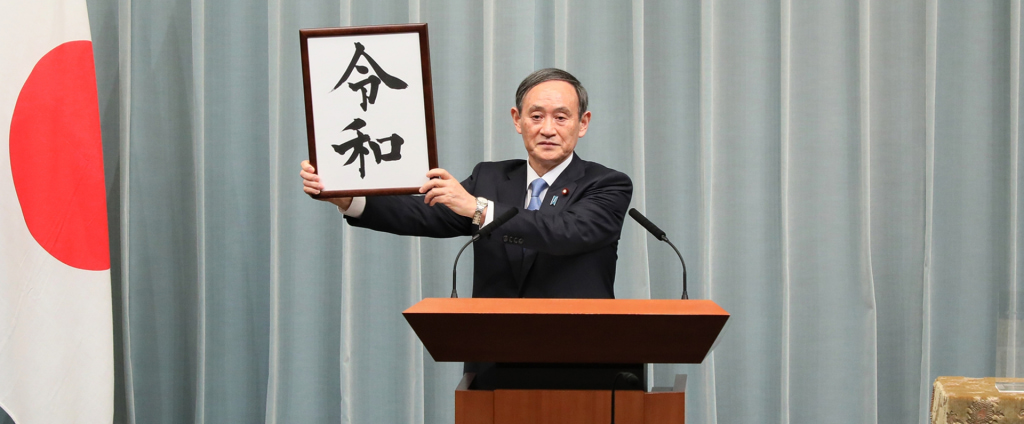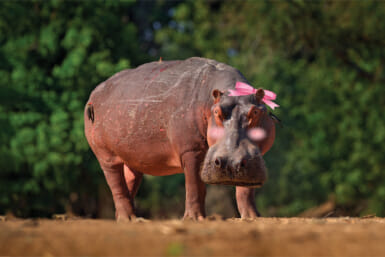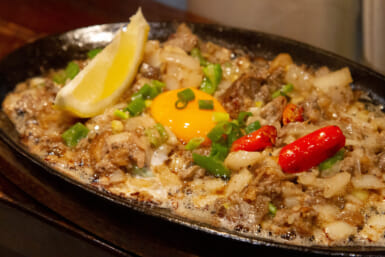Yoshihide Suga is tabbed to pick up the pieces left behind by the second Shinzo Abe administration. While Abe’s August 28 announcement to step down from the prime minister position due to health reasons came as a surprise, the fact that Chief Cabinet Secretary Suga was elected as new president of the Liberal Democratic Party was as shocking as the teacup ride at Tokyo Disney.
BREAKING: Yoshihide Suga set to become Japan's prime minister after winning LDP election https://t.co/BW4tMfJH94
— The Japan Times (@japantimes) September 14, 2020
Suga won’t officially become Japan’s next prime minister until the Diet elects the new prime minister on Wednesday, September 16. Suga’s election there is all but guaranteed as the LDP holds a majority in the House of Representatives. Japan’s next general election is set for September 2021, so Suga’s reign could potentially last just one year.
So let’s learn a little bit more about 71-year-old son of a strawberry farmer while he still holds one of the most influential positions in Asia – if not the world.
1. He Comes from Humble Beginnings
It has long been lamented that Japan’s political seats are considered hereditary. While elections are held democratically, it is often a foregone conclusion that scions will fill positions left vacant by their predecessor. In fact, Shinzo Abe’s most notable qualification to serve as PM was the fact his grandfather served in the same position and his father was a foreign minister. Suga, on the other hand, grew up in rural Akita Prefecture on a strawberry farm, and during winters lived at a boardinghouse near his high school since the area’s famous snowfalls, now beloved by ski hounds, at that time prevented travel for local schoolkids.
2. He Worked His Way Through College
Yoshihide Suga being elected as the new head of Japan's ruling party virtually guarantees him parliamentary election as the country's next prime minister. https://t.co/rEeuEA2EBG
— USA TODAY (@USATODAY) September 14, 2020
After high school Suga moved to Tokyo and famously worked at a cardboard factory to pay for university. In 1973 he obtained a bachelor of laws degree by taking night classes at Hosei University, which he says was the cheapest option available. His two rivals in the LDP presidential election, Shigeru Ishida and Fumio Kishida, attended Keio University and Waseda University respectively, and both come from political families with strong ties to the establishment.
3. His First Elected Position was on City Council
Not wanting to return to Akita, but certain he wanted to enter politics, according to Nikkei Asian Review, Suga went to Hosei’s career center. Since he had zero political connections in the nation’s capital, he asked to be introduced to Hosei alumni and was hired as secretary by fellow alumnus Hikosaburo Okonogi, a House of Representative member from Yokohama. With a new home base, Suga started a grassroots campaign to run for Yokohama Municipal Assembly. By visiting as many as 30,000 residences on foot, and becoming the first candidate in Japan to campaign in front of train stations, Suga was elected as an assemblyman in 1987. He served four terms before being elected to the House of Representatives in 1996.
4. Suga Was a Maverick in His Younger Days
Two years after joining the Diet, Suga supported Chief Cabinet Secretary Seiroku Kajiyama’s unsuccessful bid for the prime minister’s seat rather than party favorite, and eventual PM, Keizo Obuchi. Suga showed his preference for free market economics early by supporting Kajiyama’s belief that during Japan’s late-’90s financial crisis big banks should be allowed to fail through a hard landing policy. During his earlier Yokohama tutelage under Okonogi, who was minister of transport, Suga was heavily involved in the privatization of Japan Railways. This was a pivotal experience, and once he was in the Diet himself, he led the efforts to privatize Japan’s postal service.
5. Suga and Abe Bonded Over North Korea
As Japanese Prime Minister Shinzo Abe’s successor, Yoshihide Suga must deal with a stricken economy, an increasingly bellicose China and North Korea, an unpredictable White House and a ticking demographic time bomb https://t.co/4jxSvwQCuL
— TIME (@TIME) September 14, 2020
In the late ’90s North Korea broke its agreement to dismantle its nuclear program – a process the had been financed by Japan, the United States and South Korea. In 2002 North Korea expelled I.A.E.A. inspectors. At this time Abe was deputy chief Cabinet secretary at the time, and became a vocal proponent of rescuing 13 Japanese nationals abducted by North Korea in the 1970s and ’80s. Suga took shine to Abe’s rhetoric and it was an issue that the duo fought together, with Abe vowing as recently as 2019 to keep pursuing until all abductees were home.
6. Suga Has Been with Abe since the Beginning
Meet the presumptive prime minister of Japan: Yoshihide Suga. Son of a strawberry farmer and schoolteacher, he was the shadow operator behind Shinzo Abe for nearly eight years. https://t.co/e1Nm18C2J6
— Motoko Rich (@motokorich) September 14, 2020
Abe tabbed Suga to serve as minister of communication during his first scandalous term as prime minister from 2006–2007, which also ended due to complications from Abe’s colitis, a non-curable inflammatory bowel disease. Suga’s reputation allowed him to be one of the few members of the LDP to retain their seat in the Diet after LDP lost power to the short-lived Democratic Party of Japan in 2008. It was Suga who convinced Abe to successfully run for prime minister a second time in 2012, and it is said that Suga was the one who encouraged Abe to focus his positioning on the economy, dubbed Abenomics, rather than his desire to revise Japan’s Constitution.
7. Suga Led Behind the Scenes as Chief Cabinet Secretary
Upon his election, Abe awarded Suga’s loyalty by naming him chief cabinet secretary, and he was considered as the prime minister’s right hand man. His broad range of responsibilities were to coordinate policy across ministries, negotiate within the cabinet and serve as the prime minister’s de facto press secretary. Suga developed a reputation as a successful political operator who could get things done – which heavily factored into the LDP’s decision to elect him as Abe’s replacement.
8. His Nickname is Uncle Reiwa
‘Uncle Reiwa’, the Abe loyalist on cusp of unlikely rise to top of Japanese politics https://t.co/XZbWRvEkeK
— Financial Times (@FinancialTimes) September 4, 2020
When Emperor Naruhito ascended to the imperial throne last May, the Reiwa Era officially began. The name for the new era was decided after months of secret deliberations, and when the name was officially made public, Suga was chosen to deliver the news on live TV. Suga’s selection as the face of the Reiwa Era was seen as significant, indicating even then his strong favor within the party, and earned Suga the affectionate name, “Uncle Reiwa.”
9. Little Change is Expected Under PM Suga
Suga’s first task will be to tackle the ongoing impact of the Covid-19 pandemic and during his campaign he said he will consider additional payouts to households and companies. He has already declared he would not stop the Abenomics reforms that are already in motion, and said that revitalizing the economy is the number one goal. The main critique of Suga is that he lacks Abe’s international experience. Abe made 300 diplomatic trips during his tenure, working hard to earn allies overseas. It remains to be seen whether Suga, whose reputation was made within the halls of the Diet, will make the same pilgrimages.
10. Little Faith is Held that Suga will Advance Womenomics
"As Mr. Abe ends a record-long run in office, one of the more consequential entries on his list of unfulfilled aspirations is his goal of promoting women in the work force," by @motokorichhttps://t.co/kdErl6lpaR
— Tomohiro Osaki (@TomohiroOsaki) September 14, 2020
During campaign debates, all three candidates – Suga, Ishida and Kishida – admitted they spent little time with their families. Some believed Suga would give a helping hand to Japan’s floundering Womenomics program as he was part of the successful project to decrease daycare waiting lists during his time on the Yokohama assembly. However, according to The New York Times, Suga has also made comments that when actor Masaharu Fukuyama and actress Kazue Fukiishi wed in 2015, that it would inspire mothers across Japan to have babies alongside the new couple and “contribute to the country.”
Let’s see what contributions Prime Minister Yoshihide Suga will make to Japan.
Feature image: ©内閣官房内閣広報室 / The Terms of Use are compatible with the Creative Commons Attribution License 4.0 International









